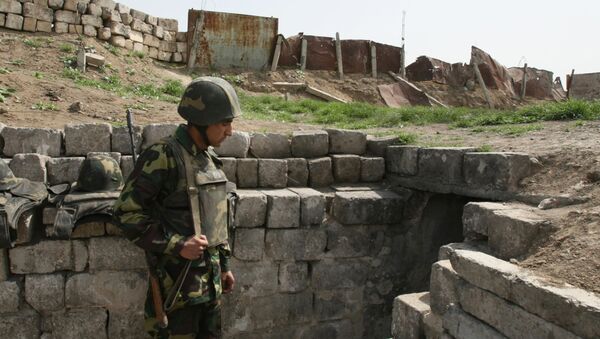“The European Union calls for an immediate cessation of hostilities, de-escalation and for strict observance of the ceasefire. The return to negotiations of the Nagorno Karabakh conflict settlement under the auspices of the OSCE Minsk Group Co-Chairs, without preconditions, is needed urgently,” a statement on behalf of Borrell read.
Germany’s Foreign Minister Heiko Maas issued similar remarks, emphasizing that the conflict can be settled only through negotiations.
“I call on both sides of the conflict to immediately end all hostilities, especially shelling of villages and towns... the conflict around Nagorno-Karabakh can be settled only through negotiations," Maas said in a statement released by Germany’s Federal Foreign Office.
Military hostilities between Armenia and Azerbaijan erupted along the disputed region’s contact line on Sunday morning, with each side accusing the other of initiating hostilities and putting civilian lives in danger. Armenia, along with the unrecognized Republic of Artsakh, declared martial law and a full-scale mobilization in response to the clashes.
The conflict in Nagorno-Karabakh began in February 1988, when the majority-Armenian autonomous region announced its secession from the Azerbaijan Soviet Socialist Republic. In the course of the armed confrontation in 1992-1994, Azerbaijan lost control over Nagorno-Karabakh and seven adjacent regions. Since 1992, negotiations on a peaceful settlement of the conflict have been conducted within the framework of the Organization for Security and Co-operation in Europe's Minsk Group, headed by three co-chairs — Russia, the United States and France. Although the region is an internationally recognized part of Azerbaijan, it has since been de facto occupied by Armenia through the unrecognized Republic of Artsakh.


